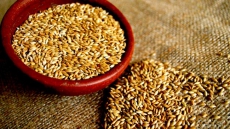Fed up of trying to reduce belly fat? A weekly carbon dioxide gas-based therapy could be safe and effective in eliminating fat around the stomach, results of first clinical trials have shown.
Carboxytherapy -- carbon dioxide gas injections -- could potentially be a new and non-invasive means of fat reduction.
However, the changes were modest and did not result in long-term fat reduction, according to the paper published in the Journal of the American Academy of Dermatology.
Carboxytherapy is a "safe, inexpensive gas, and injecting it into fat pockets may be preferred by patients who like natural treatments", said lead author Murad Alam, vice chair of dermatology at Northwestern University Feinberg School of Medicine.
While the way carboxytherapy works is not well understood, it is believed that injection of carbon dioxide causes changes in the microcirculation, and damages fat cells, he said.
For the study, the team included a small set of adults who were not overweight and were randomised to get weekly carbon dioxide gas injection to one side of their abdomens and a sham treatment on the other side once a week for five weeks.
A high-resolution ultrasound detected a reduction in superficial fat after five weeks but not at 28 weeks. The patients' body weight did not change over the course of the study.
That the difference was not maintained at six months suggests the treatment stimulated a temporary metabolic process that reduced the size of fat cells without inducing cell death, Alam said.
"If carboxytherapy can provide prolonged benefits, it offers patients yet another noninvasive option for fat reduction," Alam said.
"But we don't feel it's ready for prime time...and it still needs to be optimised, though, so it's long lasting," he noted.



